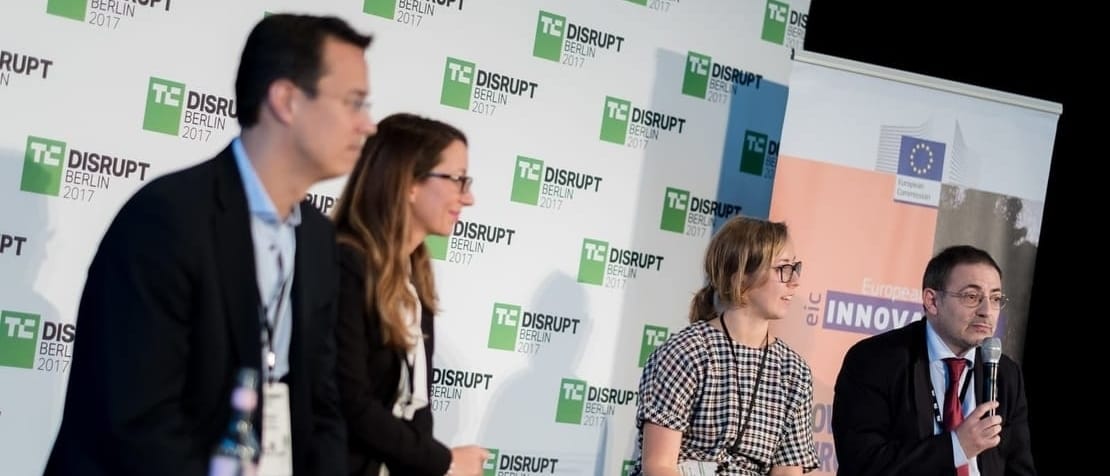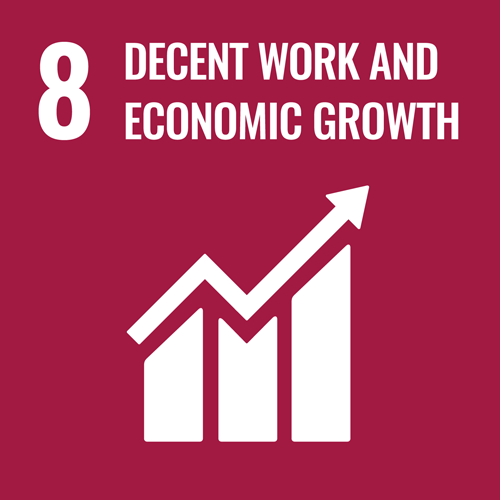Europe, it seems, is set for an innovation comeback.
The continent has sometimes lagged behind the United States and China, held back in the past by a fragmented marketplace comprised of 28 individual markets. But thanks to shifts in education, finance and R&D, this is set to change.
There have already been tectonic shifts, with European tech innovation hubs rising fast throughout the continent.
Cities such as Paris, London, Berlin, and Zug, are drawing talent and ideas to create a thriving European tech scene.
Reporting for ITU News, Lucy Spencer spoke to some of the startups disrupting industries from energy to personal identification and smartphone hardware, at TechCrunch’s Disrupt Berlin 2017 conference. Below are some highlights.
Disrupting renewable energy
Envion – a Swiss-based blockchain startup from Berlin, Germany – is addressing the growing problem of energy usage fueled by the rapid rise of cryptocurrencies such as Bitcoin and Ethereum.
The company is helping to pioneer uses of low-priced local energy to mine a broad spectrum of cryptocurrencies, creating a sustainable and efficient way to mine cryptocurrency, reducing the reliance on fossil fuels.
This is important, because the electricity used to ‘mine’ bitcoin (carry out energy-intensive calculation of algorithms) in 2017 was estimated by some to be more than the annual usage of 159 countries – and typically, this energy is sourced from fossil fuels.
Envion has developed a crypto-mining-infrastructure solution which relies on renewable energy, building modular mobile mining units that install at the source of green energy plants to capture and make use of excess pre-grid energy.
This means that Envion can access low-priced, ‘unused’ renewable energy, i.e. excess solar energy produced by local solar-power panels around the world.
“You have all of these places where there are inefficiencies in the system and we try to go wherever those are. That’s why it is a mobile solution. That’s why it is a distributed solution,” Laurent Martin, Director of Community at Envion, explained to ITU News. “This incentivizes the buildout of renewable energies and fixes this overcapacity problem.”
Disrupting virtual identity
Moving across borders, or detecting fraud; there are many reasons to justify the development and use of virtual identities.
VeridenKey, a blockchain-based verified identity key, combines blockchain technology – a decentralized public ledger that is secured via end-to-end encryption – with current biometric recognition capabilities of smartphones.
“We aim to build a mirrored image of a passport that is authorized and respected by authorities worldwide, therefore becoming a KYC [know your customer] tool for banks, improving onboarding processes and identity verification checks for companies,” William Skannerup, Founder and CEO of VeridenKey, told ITU News. However, “current regulation just does not allow for a virtual identity to exist,” he said.
But conversations with relevant parties are moving fast, Skannerup explained. “Where usually this would take 5-10 years, we’re doing it in about 5-10 months, so it’s moving forward. It also shows that governments are aware this is a need for the future.”
Disrupting consumer products
The incorporation of software technology such as artificial intelligence and augmented reality have supported the innovation of smartphones in recent years, but hardware innovation has somewhat plateaued.
The Carbon mobile device is made from space-grade composite material to develop the thinnest, lightest and strongest smartphone ever made while running on an Android operating system. Beyond market innovation, Carbon’s founders hope to drive global change, by pushing the industry away from materials such as plastic and aluminum.
RELATED: Investors share tips for tech startups in emerging markets
“It is always difficult to make something that is disrupting a major industry, where the players even dominate the supply chain. So it is very difficult to get any of the component manufacturers to do something special for you,” Carbon co-founder and CEO, Jorge R. Martins, told ITU News. “We really wanted to create something innovative and disrupt the market that was a bit stalled, and we wanted to make a change in the world regarding e-waste.”
“It is always cheaper to make it new than to recycle it. That doesn’t happen with the advanced materials that we use in Carbon, which makes it sustainable towards the future,” he said. “We are going to be part of the companies that are leading the change.”
Do these successful disruptors have any advice for other startups?
“Communicating the power of the business and business model is always the most important thing,” Envion’s Martin said. “And play by the rules.”
VeridenKey’s Skannerup agreed: “For blockchain startups, do not ignore regulation.”
But overall, “if you think you can make a difference, just do it,” Carbon’s Martins told ITU News. “It is going to be difficult, but just do it.”
By Lucy Spencer, @inquisitivelucy














